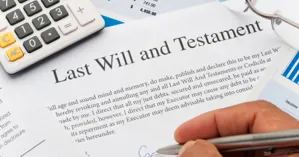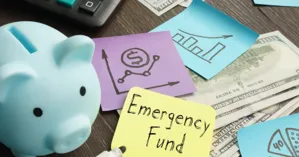
As a woman, you’re probably taking care of everyone and everything. But when it comes to money, some women have problems taking care of it. Many make the biggest mistakes that could cost them thousands of dollars. Here are eight costly mistakes women make with their money.
1. Lack of Organization or Planning

Even if you’re busy, take the time to organize your finances. Otherwise, you’ll be operating in the dark. You won’t have a clear handle on what you owe or on what you can invest each month. You may even lose track and find yourself in debt. Set aside time every other month to reconcile statements, categorize spending or download investment balances. Make it a non-negotiable date so you’ll do it and make informed decisions about your finances. Women often say that not having a plan or accounting for unexpected expenses is their biggest mistake.
2. Having Their Partner Handle Finances

If you’re not handling your finances, you won’t know what you have or don’t have. You’ll be making money without knowing where it’s going. You also won’t be learning about investing or real estate, etc. That knowledge comes from learning and doing. For many women, this mistake has been horrendous when their partner left or died. Achieving financial independence is crucial for women to make proactive choices and better manage their money, as highlighted by a recent Fidelity study.
3. Overvaluing Household Budgeting Skills

Some women think they’re good at managing money because they stay within budget. But you can’t budget your way to wealth. Although it’s essential to know your expenses, you should also be focusing on the revenue side of the equation. Setting clear money goals, such as planning for retirement and exploring different retirement account options, is crucial for achieving long-term financial stability.
4. Not Investing

Fewer women than men invest, especially young women. Investing money makes money. It’s an easy way to equalize the wealth gap between men and women by investing in individual stocks. Financial education is crucial for understanding the basics of investing and the long-term benefits. Time in the market is more important than what you invest. You don’t have to go all in. Talk to a financial advisor to see your options.
5. Not Buying Insurance

Women like to protect their family. But they fall short of this protection when it comes to buying insurance. A family can be devastated economically if an income-producing family member is debilitated or dies. Purchasing a life insurance or disability policy provides that added protection and contributes to long-term financial security.
6. Not Writing a Will

Nearly 50 percent of people don’t have a will. A woman who doesn’t have a will is leaving it up to the courts to decide on child custody. It also means estranged family members could claim your assets. Have a will written as part of a comprehensive financial plan so your family and finances are well taken care of.
7. Not Having an Emergency Fund

Many women lack a sufficient rainy-day fund. Numerous things like losing a job or having a leaky roof can result in needing extra cash. That’s what an emergency fund is for. It’s essential to be proactive when protecting your family. An emergency fund should also cover other expenses that may arise unexpectedly.
8. Accumulating Bad Debt

Not all debt is negative, but credit card debt is a prime example of bad debt. High interest rates on credit card debt can make it difficult to pay off and negatively impact your financial security.
Bad debt doesn’t increase your net worth or future income. For example, credit cards are bad debt. But a mortgage is good debt. Bad debt can leave you spinning your wheels as you try to pay it off. It’s doable, but it will take time and planning. You don't want to make the same mistakes as other women have in the past, so pay off your debt and become financially independent as soon as you can.
Conclusion
Go beyond just following a budget and take the time to monitor your finances. Financial planning is crucial for helping women take charge of their financial future and avoid costly financial mistakes. Don’t let your partner handle everything; get involved or do it yourself. Start saving for retirement early and explore different retirement account options to turbocharge your retirement savings. Do make some investments and grow your retirement.



